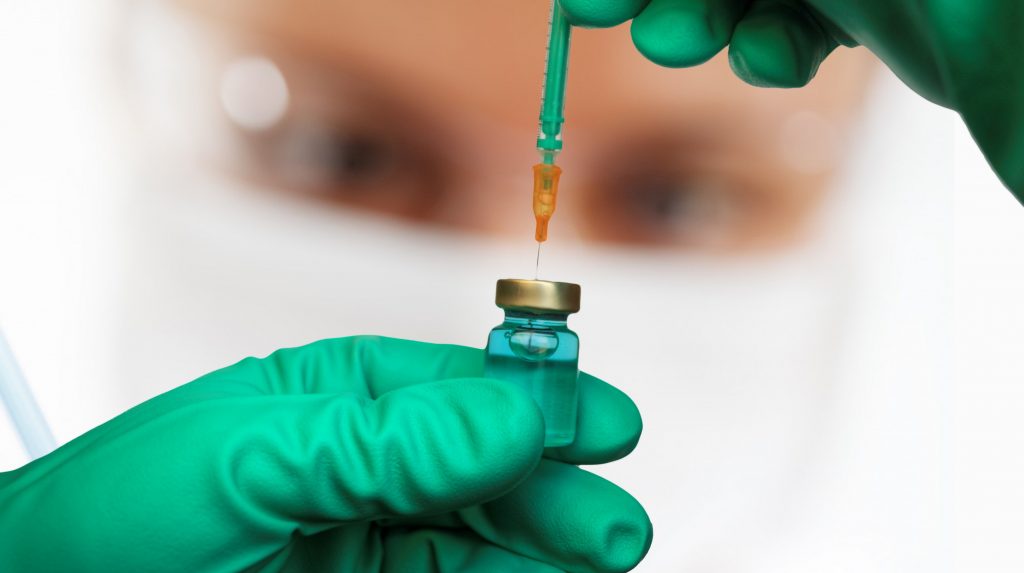While the human cost and economic disruptions of the COVID-19 have created shock waves around the world, pharma industry executives have focused on maintaining a steady supply of vital medicines and innovation. Other sectors have been more threatened financially, but the business challenges facing pharma are urgent, such as ensuring that supply chains function so patients can get prescriptions filled and remain on critical therapies.
As the coronavirus accelerates worldwide, passing 21 million infections on August 17, several countries started to reimpose lockdown measures over concerns about the second wave of infections. Egyptians are no less worried. Figures from August showed a slight increase to more than 200 new cases daily, bringing the total number of confirmed infections nationwide to more than 95,000 since the first case was detected in the country in mid-February.
With much at stake, pharma companies are moving decisively to ensure patient health, manage disruptions and develop a vaccine, antiviral or other solution for COVID-19.

Business Monthly spoke to EVA Pharma’s CEO Riad Armanious about the Egyptian company’s production of Remdesivir and Favipiravir, two drugs used to treat COVID-19. Christelle Saghbini, chairman and managing director of Sanofi Egypt, discussed how her company’s French parent is collaborating on various paths forward, and General Manager Mohamed Adel Sweilam of Upjohn Egypt, a division of Pfizer, talked about how the outbreak and related infection control measures could affect the frailest individuals and people with non-communicable diseases (NCDs), such as high blood pressure, diabetes and Alzheimer’s.
Below are excerpts from the three interviews.
How is your company responding to the pandemic?
Riad Armanious: We have worked on three buckets, or groups, of products. The most important are drugs that target the virus itself. We invested millions of dollars in Remdesivir and Favipiravir before any data was available or given to us, or any guarantee it would work. The product has been available for weeks now in Egypt in 30-plus hospitals. We worked on the drug’s development in February, applied in March for registration, started production May 8 and launched six weeks after.
[EVA Pharma, a producer of generic drugs established in 1997, was licensed by Gilead Sciences Inc. to manufacture Remdesivir in Egypt and distribute it in 127 countries. It will initially make 500,000 doses a month to be sold for about EGP 2,000 ($124) per pack, according to media reports. It also started producing 1 million Favipiravir tablets a month. The price is set for EGP 4,500, according to Al Watan newspaper.]
Christelle Saghbini: We prioritize our core purpose, which is ensuring the supply of our products to Egyptian patients. We have lifesaving medicines that are badly needed in the market, so the only thing we could afford is ensuring a proper supply of products and services.
Mohamed Adel Sweilam: During the lockdown, our priority was keeping our manufacturing site fully operational at the highest safety standards so patients can find their medications without any interruption. Moreover, we have been advocating for healthcare reforms and initiatives that could address the challenges COVID-19 brings for the healthcare system to support people living with non-communicable diseases. We also have been keen on innovating digital channels for engagement with healthcare professionals and supporting initiatives that would support better patient access to medications in a safe and controlled way. Finally, we have donated to several NGOs as part of our commitment to corporate social responsibility.
Which countries are ordering Remdesivir and Favipiravir from EVA Pharma?
Armanious: The speed of manufacturing and quality of products have helped us forge connections with many countries. Relationships that will serve us well for many years have been established in important countries like El Salvador, and big ones like the Philippines and Nigeria, the most populous nation in Africa.
How is the pharma industry working together to combat COVID-19?
Saghbini: We signed a letter of intent with GlaxoSmithKline (GSK) for a partnership focused on developing an adjuvanted COVID-19 vaccine. As part of the collaboration, Sanofi will provide its S-protein COVID-19 antigen based on recombinant DNA technology, which is used to generate an exact genetic match to proteins present on the virus’s surface. GSK will provide its pandemic adjuvant technology, used in vaccine production to stimulate the immune system and raise an early, long-lasting and efficient immune response. An adjuvant could decrease the amount of vaccine protein required per dose, enabling the manufacture of more doses. Additionally, Sanofi is exploring other options, including work with Translate Bio, a clinical-stage messenger Ribonucleic acid (RNA) biotechnology company.
Sweilam: The past couple of months have been all about collaborations. Global pharmaceutical companies are working around the clock in four key areas to beat COVID-19. First, they are working in conjunction with other life science companies to develop new diagnostics to test for the virus. Second, they are rapidly screening vast global libraries of medicines to identify potential treatments and making those medicines available to patients – right now – through clinical trials and compassionate use. Third, they also are developing new therapies and treatments for those infected with the virus, such as plasma technology and new monoclonal antibodies. Fourth, they are developing a vaccine. Hopefully, there will be multiple vaccines on the market before the end of year. The final point is what we have been working on more closely with government officials and policymakers to best utilize innovative practices offered to patients.**
How is COVID-19 affecting patients living with non-communicable diseases?
Sweilam: People living with non-communicable diseases are hurt by disruptions in routine chronic care and difficulties in accessing medication and treatment when supplies are disrupted, appointments are postponed and healthcare workers are diverted to the COVID-19 response. About 120 countries have reported at least a partial disruption of services for patients living with non-communicable diseases. Non-communicable diseases are silent killers and their complications begin to show up over time. In the long run, this disruption of healthcare services for patients living with non-communicable diseases is likely to impact mortality and morbidity rates, and put additional strain on health systems.
How is your company working to alleviate pressure on health systems?
Sweilam: Despite significant medical advancements in the prevention and treatment of chronic conditions, non-communicable diseases continue to be the leading cause of death and disability, requiring agile, quality and affordable solutions. In Egypt, those patients represent almost 84 percent of deaths. At Upjohn, we believe we can add value to healthcare systems with solutions that contribute to improving patients’ lives. Our response to the crisis has been to prioritize the continued supply of medications, supporting healthcare authorities and communities around the world, and ensuring the safety of our workforce and the communities where we live and work.
Are pharmaceutical companies in Egypt reducing their reliance on active pharmaceutical ingredients (APIs) from India and China?
Armanious: Not yet, but that is the direction we are working toward. In the 1980s, 20 percent of global APIs came from India and China. In the 2000s, 80 percent did. However, it is not about percentages or amounts of APIs coming into Egypt, it is about having alternatives. Secondly, it is having an innovation advantage. Chemical synthesis is an important component of the innovative ecosystem, which is why we invest in it. Innovation is where you add value and added value is where economic improvement happens. The challenge is we lack metrics to measure progress. We also need an innovation mindset and incentives, both of which are elusive, to say the least, in this environment. Innovation also needs to be part of long-term policy. The constitution protects intellectual property rights, but we need economic and strategic directions at the highest levels of government.
Saghbini: There are a lot of lessons to be taken from this period and maybe one of them is reducing the increased reliance on Asian countries in terms of active ingredients. At Sanofi, we announced in February that we plan to create a European company dedicated to the production and marketing of active pharmaceutical ingredients. This new entity will continue to enhance supply capacities and secure API manufacturing for Europe and beyond. I believe the key is how markets balance between local and global components moving forward. Having more sources of active ingredients would benefit patients.
What’s the outlook on a coronavirus vaccine?
Armanious: I think we will see a COVID-19 vaccine in 2021, not 2020. It is still far off, so our focus needs to be on helping patients now.
Saghbini: It’s a bit early to tell. I think managing expectations is really important because a vaccine typically takes 10 years to be developed, proven effective and put in the market. I think if we manage to take less than two years, it would be outstanding. Sanofi has decided to start producing large volumes of vaccines before clinical trials conclude to secure a higher number of doses.
What are some challenges for pharmaceutical companies in the Egyptian market?
Armanious: The pharmaceutical industry is affiliated with both the health and manufacturing sectors. To move forward with new projects and ideas requires approval from at least two ministries. Starting a new manufacturing site requires investment approvals, environmental approvals, security approvals, land approvals, building approvals and technical approvals. That’s why it is comforting to have the EDA (Egyptian Drug Authority) for technical approvals. Egypt also needs to invest more in translating ideas into action by solidifying the links between academia and industry. We also lack metrics to measure progress. Innovation needs to be part of long-term policy. The constitution protects intellectual property rights, but we need economics and strategic direction at the highest governmental levels.
Saghbini: In Egypt, 80 percent of what we sell locally is produced in Cairo. In the current context, making sure we’re getting the ingredients that meet our production capacity and ensuring consistent supply to patients is an industry challenge. I also believe shifting operations of the industry to digital solutions, increasing the role of telemedicine and better patient management at home will be challenges to address moving forward. This is where partnerships, collaborations between startups and established companies, and the private and public sectors will make a difference.
What lessons can the pharma industry learn from the pandemic?
Armanious: I think pharmaceutical and healthcare professionals need to be prepared, just as armies are ready for war. You always need to have a standing army against the next possible virus, particularly when it poses the danger of stopping life as we know it.
Saghbini: Lessons we are learning during this pandemic must help spark positive and lasting change. First, the pandemic gave us a glimpse of what a world without vaccines could look like. That’s why prevention is key. Equally important is access to quality healthcare for all. Second, the whole patient pathway will have to be reassessed from diagnosis to treatment, especially when it comes to chronic diseases, and the role of telemedicine and integrated care solutions will increase significantly. We also will need to invest more in data analytics and artificial intelligence. Last but not least, the pandemic taught us new ways of working when it comes to agility, flexibility and the importance of collaboration and partnerships.
Sweilam: To focus on telemedicine and prioritize innovative digital solutions to guarantee that patients will get the help they need even if they cannot physically be at a pharmacy, clinic or hospital. Digital is the future. As the pandemic has put a spotlight on the importance of healthcare funding and investment and showcased the impact of health on the economy, healthcare decision makers should approach healthcare budgeting and priorities in a new way. Building stronger, resilient health systems that can better respond to health emergencies while continuing to provide essential health services to people living with NCDs and other underlying conditions.







